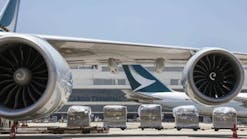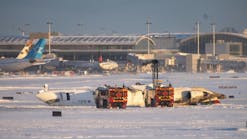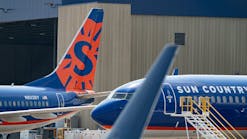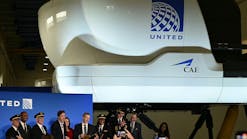Richard Branson's Virgin Atlantic Airways said it secured a financial package worth about $1.5 billion that will allow it to stave off bankruptcy and provide some breathing room for the British billionaire's broader effort to stabilize a travel and tourism empire hit hard by the pandemic.
Mr. Branson's Virgin Group will invest £200 million ($250 million) in the U.K.-based airline, a popular option for trans-Atlantic flights. U.S.-based Davidson Kempner Capital Management LP, meanwhile, is providing £170 million ($213 million) in secured loans.
The deal is contingent on the airline making savings through deferrals of fees and advances from payments companies and aircraft lessors.
The company will also push back orders of new Airbus SE aircraft, it said.
Virgin Group will retain its 51% controlling stake in the airline, and its U.S. partner Delta Air Lines Inc. will continue to hold the remaining 49%. Both companies are deferring fees on things like using Virgin's brand name and Delta's booking system, Virgin said.
In recent years, Mr. Branson had taken a back seat in a 50-year-old business he built through a constant churn of new investments in industries like airlines, banks, gyms and hotels.
He assumed a big role in setting up, running and promoting many of them--often through high-profile stunts. He once arrived in Manhattan's Times Square in a tank to advertise a new cola brand.
More recently, though, Mr. Branson has acted more like an investor in these businesses than its manager, according to people who work with him.
He is now at the center of the financial difficulties the pandemic has unleashed. Many of his biggest investments are geared toward travel and leisure, industries particularly hard hit by the crisis.
Mr. Branson's Virgin Voyages cruise line had just taken delivery of its first vessel when the pandemic brought that industry to a halt.
Virgin Voyages has another three cruise ships for which it has signed binding contracts for delivery over the next three years, at a cost of around €2 billion ($2.17 billion), according to news releases the company issued last year. The effort is a joint venture with U.S. private-equity firm Bain Capital.
Virgin Hotels, meanwhile, was set to open three new U.S. properties this year--in Nashville, New York and Las Vegas--and a further two the year after.
The Virgin Group generates around $150 million a year in revenue, according to a person familiar with its business. In the last five years, it has also made around $1.5 billion by selling assets to reinvest in businesses like Virgin Voyages and two space-linked enterprises, this person said.
Mr. Branson has been dealing with the crisis from the British Virgin Islands, where he owns the island of Necker. Early in the pandemic, he said he was considering borrowing against the island to help bolster his other businesses.
In May, Virgin Group sold over 10% of Virgin Galactic Holdings Inc., the space tourism venture that recently started trading in New York. Part of those proceeds are going into Virgin Atlantic.
Despite the lifeline, Virgin Atlantic still faces big hurdles. Airlines across the globe have retrenched dramatically as air travel has come to a near-standstill. They have furloughed or let go hundreds of thousands of staff, deferred or canceled new aircraft orders and grounded flights, drying up revenue.
Unlike in the rest of Europe, where the likes of Deutsche Lufthansa AG and Air France-KLM have received billions of dollars worth of loans from local governments, the U.K. opted to forgo an aviation-specific bailout strategy. That led Virgin Atlantic to undertake a monthslong search for external funding to keep its operations ticking.
"Undoubtedly, the last six months have been the toughest we have faced in our 36-year history," said Shai Weiss, Virgin Atlantic's chief executive, in a statement.
Virgin Atlantic was poised this year to turn its first profit since 2016 until the coronavirus struck, cutting flights by 98% in the second quarter and forcing the airline to lay off 3,550 workers.
The airline said in its statement that it expects capacity to be reduced by 60% in the second half of 2020 from the year before and predicts precrisis levels of flying won't return until 2023.
Last month, Bain Capital agreed to buy Virgin Atlantic's insolvent sister airline Virgin Australia Holdings Ltd., charting a future involving fewer and smaller planes and mirroring strategies adopted by other carriers, including in the U.S.
———
©2020 the Bangkok Post (Bangkok, Thailand)
Visit the Bangkok Post (Bangkok, Thailand) at www.bangkokpost.com
Distributed by Tribune Content Agency, LLC.



